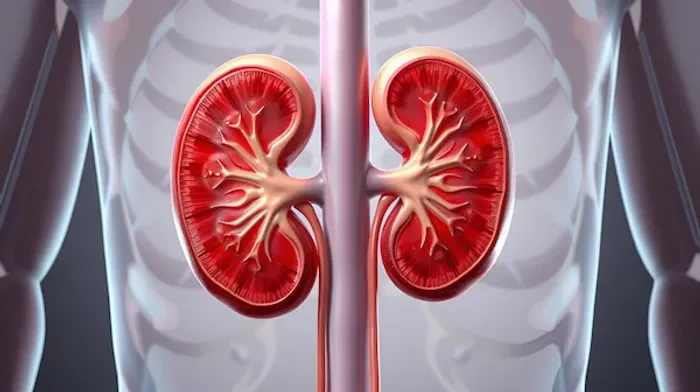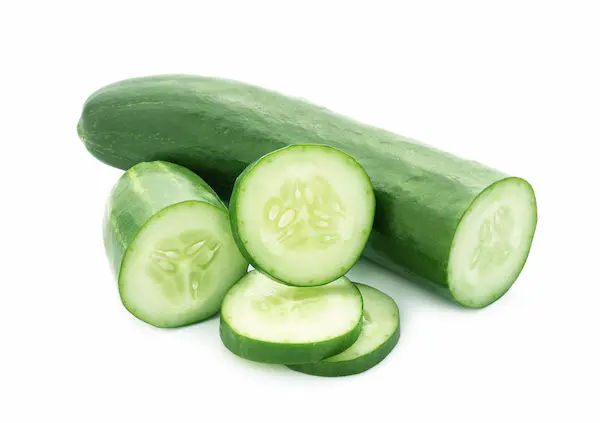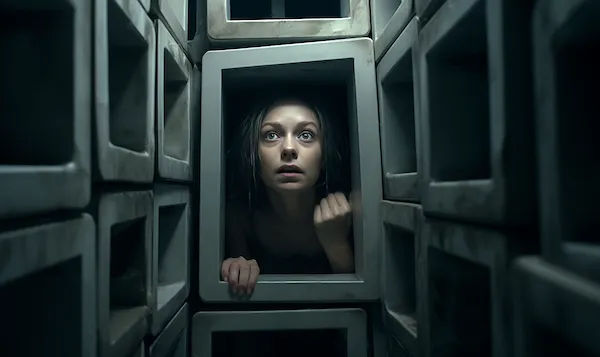Powerful Ways to Protect Your Kidney Health Today
Discover effective tips and lifestyle habits to maintain kidney health and prevent potential kidney problems.

Written by Dr. Shaik Abdul Kalam
Reviewed by Dr. D Bhanu Prakash MBBS, AFIH, Advanced certificate in critical care medicine, Fellowship in critical care medicine
Last updated on 13th Jan, 2026

Introduction
Your kidneys are the unsung heroes of your body, working tirelessly around the clock to filter waste, balance fluids, and regulate blood pressure. Yet, we often take them for granted until a problem arises. Kidney disease is frequently called a "silent" illness because symptoms may not appear until significant damage has occurred. The good news is that by adopting proactive, kidney-friendly habits, you can significantly reduce your risk and support these vital organs for years to come. This comprehensive guide will walk you through the most effective, evidence-based strategies for protecting your kidneys. From the simple power of water to managing complex conditions, we will cover everything you need to know to take control of your renal health starting today.
Why Kidney Protection is Non-Negotiable
Kidneys play a vital role in filtering waste and maintaining overall health.
The Silent Workhorses of Your Body
Think of your kidneys as sophisticated filtration plants. Every day, they process about 200 quarts of blood to sift out about 2 quarts of waste products and extra water, which become urine. But their job doesn't stop there. They also release hormones that regulate blood pressure, produce red blood cells, and ensure your bones stay strong by activating vitamin D. When your kidneys are compromised, this delicate balance is disrupted, leading to a cascade of health issues.
The Domino Effect of Kidney Damage
Kidney damage often progresses slowly. Early stages may have no symptoms, but as function declines, waste builds up in the blood, causing complications like hypertension, anaemia, weak bones, and nerve damage. Ultimately, this can lead to end-stage renal disease (ESRD), requiring dialysis or a kidney transplant. Protecting your kidneys isn't just about avoiding one disease; it's about safeguarding your entire cardiovascular and metabolic health.
Consult a Nephrologist for the best advice
Hydration: Your Kidneys' Best Friend
Proper hydration is essential for your body to function optimally.
How Much Water is Really Enough?
Adequate water intake is crucial for helping your kidneys dilute and flush out toxins. The old "eight glasses a day" rule is a good starting point, but individual needs vary based on climate, activity level, and overall health. A more personalised approach is to aim for pale yellow urine. If your urine is dark, it’s a sign you need to drink more fluids. Water is the best choice, but herbal teas and clear broths also contribute to your daily fluid intake.
Signs You're Not Drinking Enough Water
Beyond dark urine, persistent dehydration can lead to early signs of kidney problems like fatigue, difficulty concentrating, and dry skin. Chronic dehydration can increase the risk of kidney stones and urinary tract infections, which can cause long-term damage to the kidneys if recurrent. Making a conscious habit of sipping water throughout the day is one of the simplest yet most effective ways to improve kidney function naturally.
Fuelling Right: A Kidney-Friendly Diet
What you eat directly impacts your kidney health. Here’s how a kidney-friendly diet can keep them strong and functioning well.
The Sodium and Blood Pressure Connection
Your kidneys work hard to regulate sodium levels. A high-salt diet forces them to work overtime and can lead to high blood pressure, a primary cause of kidney disease. The diet to prevent kidney stones and damage emphasises fresh, whole foods. Avoid processed meats, canned soups, frozen dinners, and fast food, which are notoriously high in sodium. Instead, flavor your food with herbs, spices, and lemon juice.
Smart Protein Choices for Kidney Health
While protein is essential, excessive consumption, especially from red meat, can put a strain on your kidneys. The breakdown of protein creates waste products that your kidneys must filter. Opt for lean protein sources like chicken, fish, eggs, and plant-based options like beans and lentils. Moderation is key.
The Hidden Dangers of Processed Foods
Processed foods are a triple threat: they're often high in sodium, phosphorus, and unhealthy fats. Many packaged foods contain added phosphorus, which is more easily absorbed by the body than natural phosphorus and can be particularly harmful to individuals with existing kidney disease risk factors. Sticking to a whole-foods diet is one of the best protective measures you can take.
Managing Underlying Health Conditions
Certain health conditions can strain your kidneys over time.
Keeping Diabetes in Check
Diabetes is the leading cause of kidney disease. High blood sugar levels damage the tiny blood vessels in the kidneys' filtering units (nephrons). If you have diabetes, carefully managing your blood sugar and getting regular kidney function tests like the HbA1c is non-negotiable. Apollo24|7 offers a convenient home collection for tests like HbA1c, making it easier to stay on top of your health.
Controlling High Blood Pressure (Hypertension)
Hypertension is the second leading cause of kidney failure. High pressure damages the delicate vessels in the kidneys, impairing their ability to filter blood. Monitoring your blood pressure, taking prescribed medications consistently, and following a low-sodium diet are critical. If your blood pressure readings are consistently high, consult a doctor online with Apollo24|7 to create a management plan.
Medication Safety: A Delicate Balance
The medicines you take can affect your kidneys.
The Truth About NSAIDs and Your Kidneys
Nonsteroidal anti-inflammatory drugs (NSAIDs) like ibuprofen and naproxen are common over-the-counter painkillers. While effective, frequent or high-dose use can reduce blood flow to the kidneys, causing damage over time. This is a key answer to "are painkillers bad for your kidneys?" Use them sparingly and never exceed the recommended dose. For chronic pain, talk to your doctor about safer alternatives.
Proper Use of Medications and Supplements
Always follow dosage instructions for prescription drugs. Certain antibiotics and medications can be harmful to the kidneys if misused. Furthermore, some herbal supplements can be toxic to the kidneys. Inform your doctor about all supplements you are taking to ensure they are safe for you.
The Power of a Healthy Lifestyle
Everyday habits shape your kidney health.
Maintaining a Healthy Weight
Obesity increases the risk of diabetes and hypertension, directly impacting kidney health. Even a modest weight loss of 5-10% can significantly improve blood pressure and sugar control, reducing the strain on your kidneys.
Quitting Smoking: A Critical Step
Smoking damages blood vessels, decreasing blood flow to the kidneys. It also increases the risk of kidney cancer by about 50%. Quitting smoking is one of the most impactful steps you can take for your overall and renal health.
The Role of Regular Exercise
Regular physical activity helps control weight, lower blood pressure, and reduce the risk of chronic kidney disease. Aim for at least 30 minutes of moderate exercise, like brisk walking, cycling, or swimming, most days of the week.
Proactive Health: Knowing Your Status
Understanding your current health is the first step to prevention.
Understanding Your Kidney Disease Risk Factors
Knowledge is power. Key risk factors include diabetes, high blood pressure, heart disease, family history of kidney failure, and being over 60. If you have these risk factors, you need to be extra vigilant.
The Importance of Regular Kidney Function Tests
Simple blood and urine tests can detect early signs of trouble. A blood test measures creatinine to estimate your Glomerular Filtration Rate (GFR), while a urine test checks for albumin (a type of protein), which is an early marker of kidney damage. If you have risk factors, discussing a screening schedule with a doctor is crucial.
Get Your Health Assessed
Conclusion
Protecting your kidneys is a lifelong commitment that pays dividends for your overall well-being. The strategies outlined here are not drastic overhauls but sustainable lifestyle integrations centred on conscious hydration, mindful eating, and proactive health management. By understanding the critical roles your kidneys play and the factors that can harm them, you empower yourself to make informed daily choices. Remember, kidney disease is often preventable. Start with one or two changes, such as increasing your water intake or reducing salt, and gradually build from there. Your body’s silent filtration system works tirelessly for you; it’s time to return the favour. If you have concerns about your kidney health based on risk factors or symptoms, booking a consultation with a nephrologist via Apollo24|7 is a proactive step towards lasting health.
Consult a Nephrologist for the best advice
Consult a Nephrologist for the best advice

Dr. Sunil Jawale
Nephrologist
17 Years • MBBS, MD (Internal Medicine), DM (Nephrology)
Pune
Apollo Hospitals Pune, Pune

Dr. Umesh Chandra Sahu
Nephrologist
32 Years • MBBS,MD ( General Medicine ). Sr. Consultant ( Nephrology )
Rourkela
Apollo Hospitals, Rourkela, Rourkela

Dr. Manju Kamal
Nephrologist
12 Years • MBBS,MD(General Medicine), DNB,DM(Nephrology)
Angamaly
Apollo Hospitals Karukutty, Angamaly

Dr. Jony Agarwal
Nephrologist
4 Years • MBBS, MD (Internal Medicine), DM (Nephrology)
Lucknow
Apollomedics Super Speciality Hospital, Lucknow
(50+ Patients)

Dr. Krishna V Patil
Nephrologist
16 Years • MBBS, MD(Med), DM(Nephrology), FICN(Canada), Fellow of American Society of Nephrology
Hyderabad
Apollo Hospitals Jubilee Hills, Hyderabad






